
(Arabic Profile إدوارد سعيد) Edward Wadie Said was a professor of literature at Columbia University, a public intellectual, and a founder of the academic field of postcolonial studies. A Palestinian American born in Mandatory Palestine, he was a citizen of the United States by way of his father, a U.S. Army veteran. Educated in the Western canon, at British and American schools, Said applied his education and bi-cultural perspective to illuminating the gaps of cultural and political understanding between the Western world and the Eastern world, especially about the Israeli-Palestinian conflict in the Middle East; his principal influences were Antonio Gramsci, Frantz Fanon, Aimé Césaire, Michel Foucault, and Theodor Adorno. As a cultural critic, Said is known for the book Orientalism (1978), a critique of the cultural representations that are the bases of Orientalism—how the Western world perceives the Orient. Said’s model of textual analysis transformed the academic discourse of researchers in literary theory, literary criticism, and Middle-Eastern studies—how academics examine, describe, and define the cultures being studied. As a foundational text, Orientalism was controversial among the scholars of Oriental Studies, philosophy, and literature. As a public intellectual, Said was a controversial member of the Palestinian National Council, because he publicly criticized Israel and the Arab countries, especially the political and cultural policies of Muslim régimes who acted against the national interests of their peoples. Said advocated the establishment of a Palestinian state to ensure equal political and human rights for the Palestinians in Israel, including the right of return to the homeland. He defined his oppositional relation with the status quo as the remit of the public intellectual who has “to sift, to judge, to criticize, to choose, so that choice and agency return to the individual” man and woman. In 1999, with his friend Daniel Barenboim, Said co-founded the West–Eastern Divan Orchestra, based in Seville, which comprises young Israeli, Palestinian, and Arab musicians. Besides being an academic, Said also was an accomplished pianist, and, with Barenboim, co-authored the book Parallels and Paradoxes: Explorations in Music and Society (2002), a compilation of their conversations about music. Edward Said died of leukemia on 25 September 2003.
Series
Books
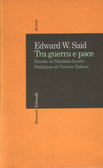
Tra guerra e pace. Ritorno in Palestina-Israele
1998

Covering Islam
How the Media and the Experts Determine How We See the Rest of the World
1981

Orientalism
1853

The World, the Text, and the Critic
1983

The Question of Palestine
1979

Musical Elaborations
1991
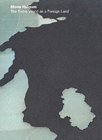
Mona Hatoum
The Entire World as a Foreign Land
2000

Said on Opera
2024

The Selected Works of Edward Said
1966-2006
2019

The Edward Said Reader
2000

Representations of the Intellectual
1994

Music at the Limits
2007

Beginnings
Intention and Method
1975
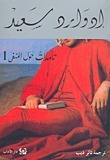
تأملات حول المنفى 1
2004

Humanism and Democratic Criticism
2004

Edward Said on Palestine
2014

The End of the Peace Process
Oslo and After
2000

The Politics of Dispossession
The Struggle for Palestinian Self-Determination, 1969-1994
1994
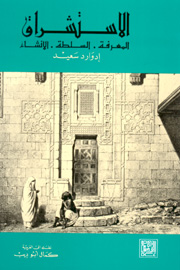
الاستشراق المعرفة السلطة الإنشاء
1980
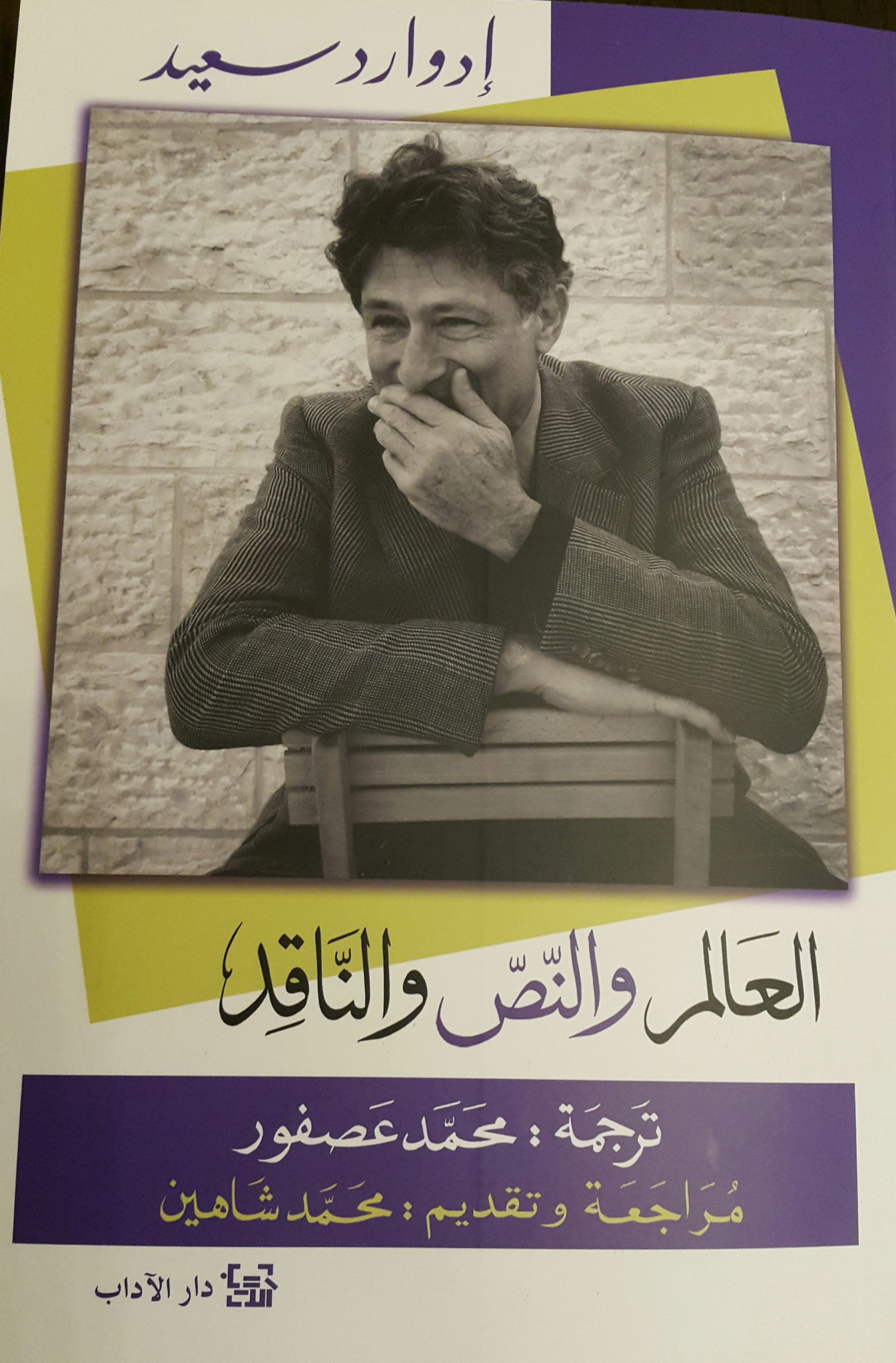
العالم والنص والناقد
1983

From Oslo to Iraq and the Road Map
Essays
2004
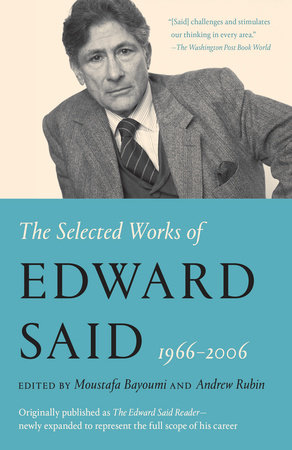
Zionism from the Standpoint of Its Victims
2026

Power, Politics, and Culture
Interviews with Edward W. Said
2001
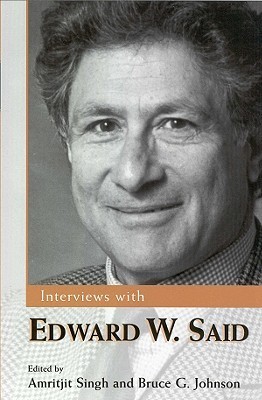
Interviews with Edward W. Said
2004

مقالات وحوارات
2004

On Late Style
Music and Literature Against the Grain
2006

خيانة المثقفين
النصوص الأخيرة
2011

Culture and Resistance
Conversations with Edward W. Said
2003

Reflections on Exile and Other Essays
2001

Peace And Its Discontents
Essays on Palestine in the Middle East Peace Process
1994
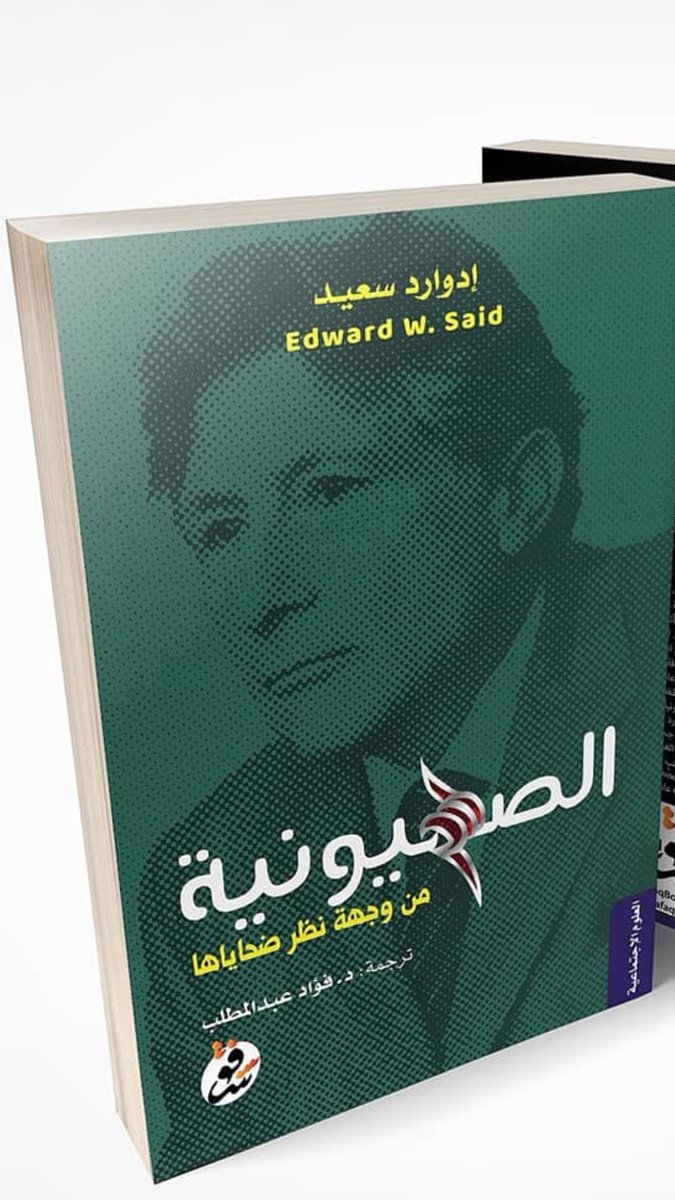
الصهيونية من وجهة نظر ضحاياها
2026

Orientalism
1978

الإسلام والغرب مقالات ودراسات مختارة
2014

The Tanner Lectures on Human Values 1997
1997

After the Last Sky
1986

Joseph Conrad and the Fiction of Autobiography
1966

Out of Place
A Memoir
1999

The Pen And The Sword
Conversations With David Barsamian
1994

Culture and Imperialism
1993
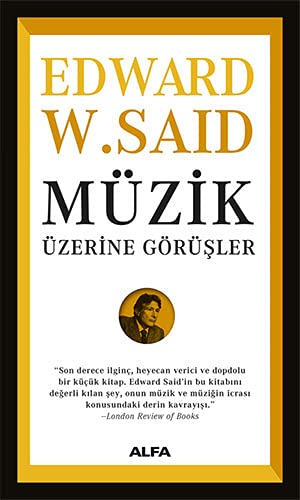
Müzik Üzerine Görüsler
2021

القضية الفلسطينية والمجتمع الأميركي
1980

Freud and the Non-European
2002


